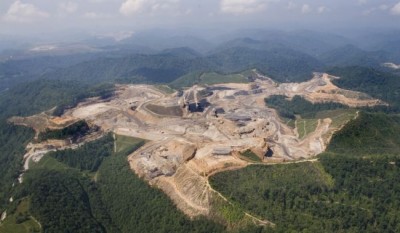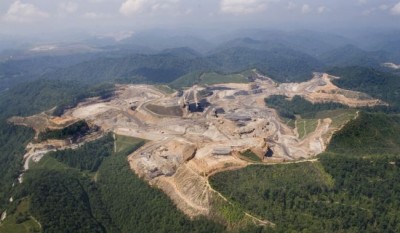 There will be no more excursions to Dollywood for Roger Horton, a coal miner who lives in West Virginia — at least not until U.S. Sen. Lamar Alexander (R-Tenn.) drops legislation he’s sponsoring that would limit mountaintop removal mining.
There will be no more excursions to Dollywood for Roger Horton, a coal miner who lives in West Virginia — at least not until U.S. Sen. Lamar Alexander (R-Tenn.) drops legislation he’s sponsoring that would limit mountaintop removal mining.
Horton is the mastermind behind a tourism boycott involving miners in neighboring West Virginia and Kentucky, who say they refuse to spend any money in Tennessee as long as its Senator is threatening their jobs.
The Washington Post reports that Horton came up with the idea for the boycott while riding the bus home from a June 25 Senate committee hearing on the Appalachian Restoration Act, sponsored by Alexander and Sen. Benjamin Cardin (D-Md.). The law would prevent the dumping of toxic mining waste from mountaintop removal mining into headwater streams.
“It’s not necessary to destroy our mountaintops in order to have enough coal,” Alexander said in his opening statement at that hearing. “Saving our mountaintops is important to me.”
That didn’t sit well with the miners, who fear their jobs are on the line. Horton is a truck driver who works at Guyan Mine, a mountaintop removal operation in Logan County, W.V. owned by Apogee Coal Co., a subsidiary of Missouri-based Patriot Coal. A member of the UMWA Local 5958, Horton also directs a lobby group called Citizens for Coal, which counts among its funders the Logan County Commission.
“I understand their feelings,” Alexander told the Associated Press. “But I have feelings, too. And my feelings are that millions of people come to Tennessee to see the beauty of the mountaintops and not to see mountains whose tops have been blown off with the waste dumped in our streams — which is all I am trying to stop.”
Members of Coal River Mountain Watch, a grassroots citizens’ group working to stop mountaintop removal, say they intend to visit Tennessee to counter the miners’ boycott.
The boycott comes amid heightening tensions in Appalachia’s mining communities. The West Virginia Council of Churches recently released a statement calling for peaceful dialogue in the coal fields and urging civic leaders, the coal industry and environmental groups to “desist in using inflammatory rhetoric, and to encourage an attitude of understanding toward those with whom one disagrees.”
Earlier this month, the premiere of a documentary film about mountaintop removal was canceled at a one West Virginia venue because of unspecified security concerns. In other recent incidents involving violence or the threat of it, a proponent of mountaintop removal was charged with assaulting an nonviolent protester, while supporters of a mountaintop removal mining company crashed a music festival and threatened mountaintop removal opponents.
(This story originally appeared at Facing South.)


